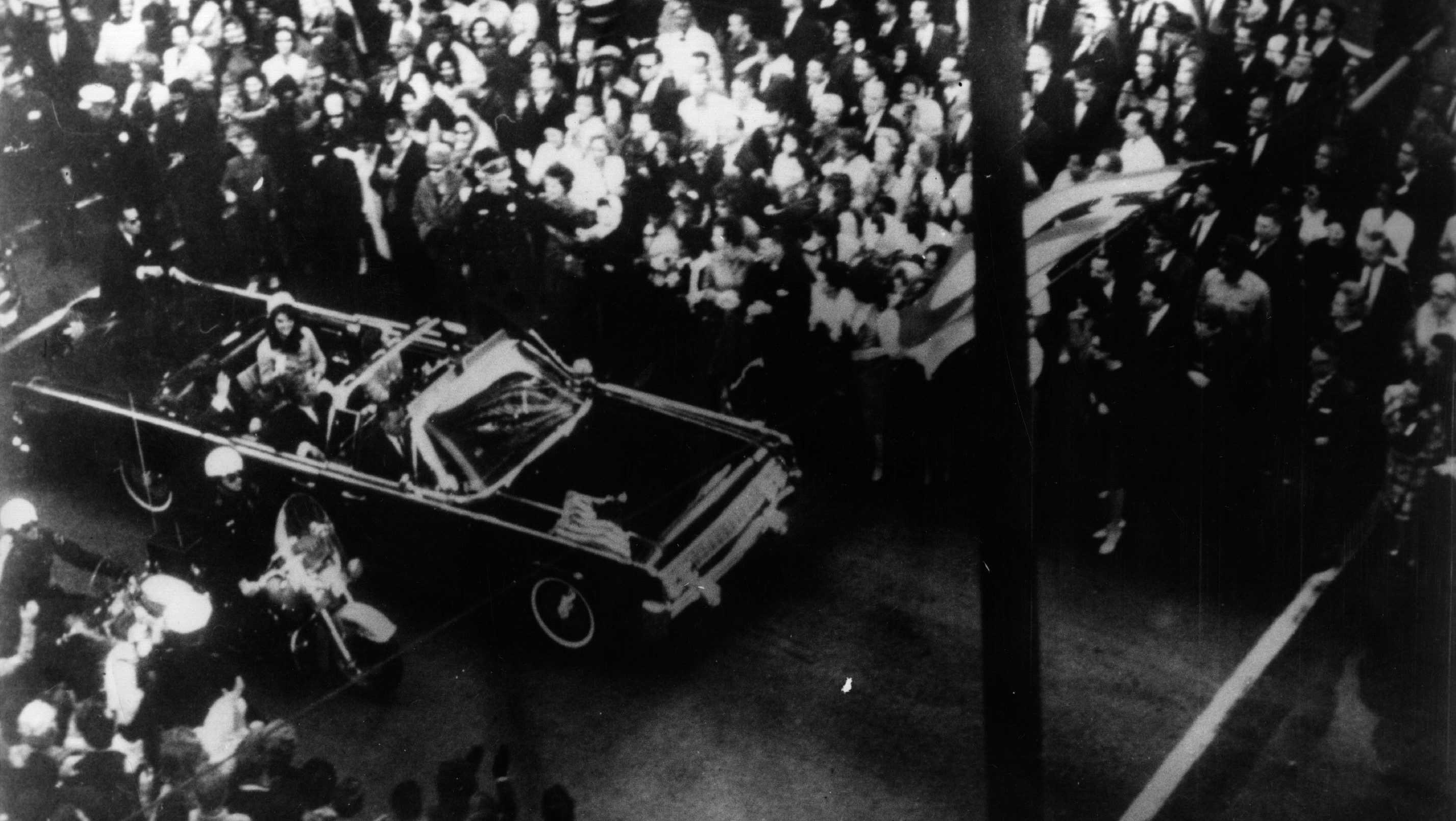White House further postpones disclosure of JFK assassination documents, citing COVID-19

The White House announced late Friday that it would further postpone the release of more documents related to the 1963 assassination of President John F. Kennedy, pointing to the “significant impact” of the COVID-19 pandemic.Related video above: Historian says no “Bombshells” in JFK papers released in 2017.President Joe Biden issued a memo that said the national archivist recommended he “‘direct two public releases of the information that has ultimately ‘been determined to be appropriate for release to the public.’” The first will be an “interim release” later this year, with a second, “more comprehensive release in late 2022,” the memo said.The memo said that the COVID-19 pandemic has slowed down the process of reviewing whether redactions continue to meet the “statutory standard.”The memo was part of the administration’s commitment “to ensure transparency and accountability in government,” a national security spokesperson told CNN on Saturday.The spokesperson told CNN that Biden “also directed the National Archives to develop a plan to digitize the full collection — more than 300,000 records — to democratize the records and allow the public to review them online.”Kennedy’s assassination prompted a whirlwind of questions from the public and researchers, plenty of conspiracy theories and reflexive secrecy from the government.Over the years, millions of documents have become public, offering researchers an opportunity to pore over not only records related to the Kennedy assassination, but also a variety of other topics, from Dr. Martin Luther King Jr.’s life and slaying to pivotal moments in the Cold War.In 2018, former President Donald Trump extended the deadline for the public release of the assassination files to 2021, citing “identifiable harm to national security, law enforcement, or foreign affairs.” Trump’s move came on the deadline he previously imposed in 2017 for the full release of the files — barring national security and privacy concerns — after the 25-year-in-the-making deadline imposed by the John F. Kennedy Assassination Records Collection Act, signed by President George H.W. Bush, came to pass.Trump’s 2018 memorandum accompanied a release of about 19,000 documents by the National Archives in compliance with the records law and Trump’s order the previous year. Many of the documents released then contained redactions, and they joined the massive trove of assassination records that already have been made public.The records’ further release has been highly anticipated, with Biden’s memo stating that they “shall be withheld from full public disclosure until December 15, 2022.”The national archivist also noted to the administration that “making these decisions is a matter that requires a professional, scholarly, and orderly process; not decisions or releases made in haste.”According to the White House, more than 94% of the records in the National Archives’ assassination collection already have been released, with the administration aiming for “maximum possible disclosure of information by the end of 2022.”
The White House announced late Friday that it would further postpone the release of more documents related to the 1963 assassination of President John F. Kennedy, pointing to the “significant impact” of the COVID-19 pandemic.
Related video above: Historian says no “Bombshells” in JFK papers released in 2017.
Advertisement
President Joe Biden issued a memo that said the national archivist recommended he “‘direct two public releases of the information that has ultimately ‘been determined to be appropriate for release to the public.’” The first will be an “interim release” later this year, with a second, “more comprehensive release in late 2022,” the memo said.
The memo said that the COVID-19 pandemic has slowed down the process of reviewing whether redactions continue to meet the “statutory standard.”
The memo was part of the administration’s commitment “to ensure transparency and accountability in government,” a national security spokesperson told CNN on Saturday.
The spokesperson told CNN that Biden “also directed the National Archives to develop a plan to digitize the full collection — more than 300,000 records — to democratize the records and allow the public to review them online.”
Kennedy’s assassination prompted a whirlwind of questions from the public and researchers, plenty of conspiracy theories and reflexive secrecy from the government.
Over the years, millions of documents have become public, offering researchers an opportunity to pore over not only records related to the Kennedy assassination, but also a variety of other topics, from Dr. Martin Luther King Jr.’s life and slaying to pivotal moments in the Cold War.
In 2018, former President Donald Trump extended the deadline for the public release of the assassination files to 2021, citing “identifiable harm to national security, law enforcement, or foreign affairs.” Trump’s move came on the deadline he previously imposed in 2017 for the full release of the files — barring national security and privacy concerns — after the 25-year-in-the-making deadline imposed by the John F. Kennedy Assassination Records Collection Act, signed by President George H.W. Bush, came to pass.
Trump’s 2018 memorandum accompanied a release of about 19,000 documents by the National Archives in compliance with the records law and Trump’s order the previous year. Many of the documents released then contained redactions, and they joined the massive trove of assassination records that already have been made public.
The records’ further release has been highly anticipated, with Biden’s memo stating that they “shall be withheld from full public disclosure until December 15, 2022.”
The national archivist also noted to the administration that “making these decisions is a matter that requires a professional, scholarly, and orderly process; not decisions or releases made in haste.”
According to the White House, more than 94% of the records in the National Archives’ assassination collection already have been released, with the administration aiming for “maximum possible disclosure of information by the end of 2022.”


